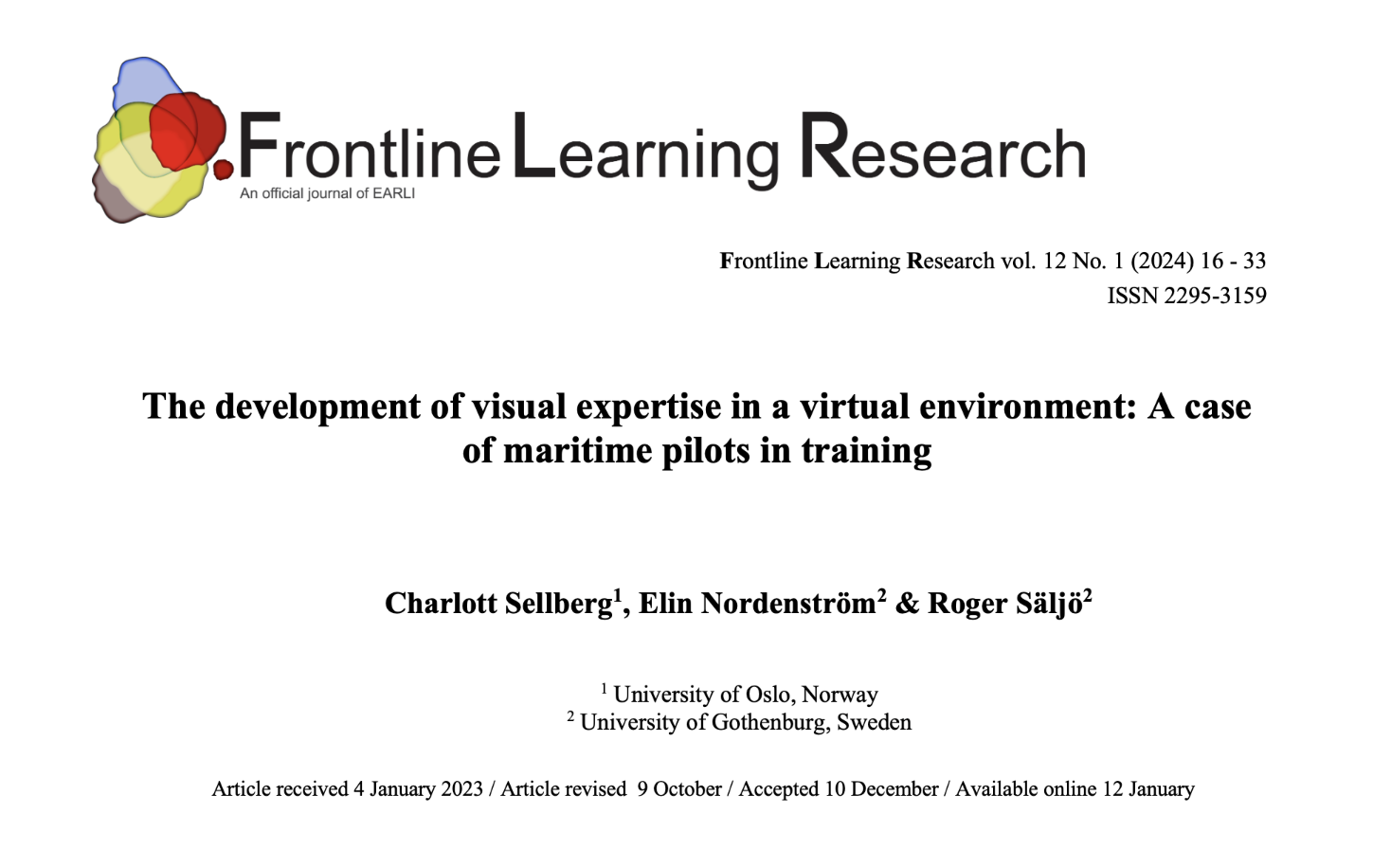Frontline Learning Research

This study connects to an ongoing discussion about the limits and affordances of simulators as realistic and relevant contexts for professional learning, in this case in the development of visual expertise. Earlier studies of simulator-based maritime pilot training conclude that there are risks associated with so-called negative skills transfer due to a lack of photorealism in simulator environments. The aim of this study is to carefully examine how visual expertise develops in and through training in a simulated environment. Through a practice-based approach to the development of visual expertise, and by using qualitative interaction analysis of video recorded training sessions, the analytical focus is directed towards maritime pilot trainees’ talk about imperfections and inconsistencies in the virtual environment during exercises in a high-fidelity bridge simulator. Considering the multi-layered nature of the maritime pilot’s visual expertise, findings show that the maritime pilots in training noticed and adapted to the specific methodological and technological challenges when manoeuvring a simulated vessel. During such reflection-in-action, they also commented on and explored the differences between, navigating in a simulator, on the one hand, and, on the other hand, navigating on board a ship. Instead of concluding that there is a risk for negative skills transfer that follows from the differences between the two contexts of navigating, we argue that the challenges introduced by representations encountered when training in a virtual environment may add to the expertise of the trainees and lead to enriched conceptual, methodological, and technical knowledge regarding the specificities of visually demanding and ambiguous navigation situations. In this way, this study contributes to advance our understanding of learning in virtual environments to the frontline of learning research.
